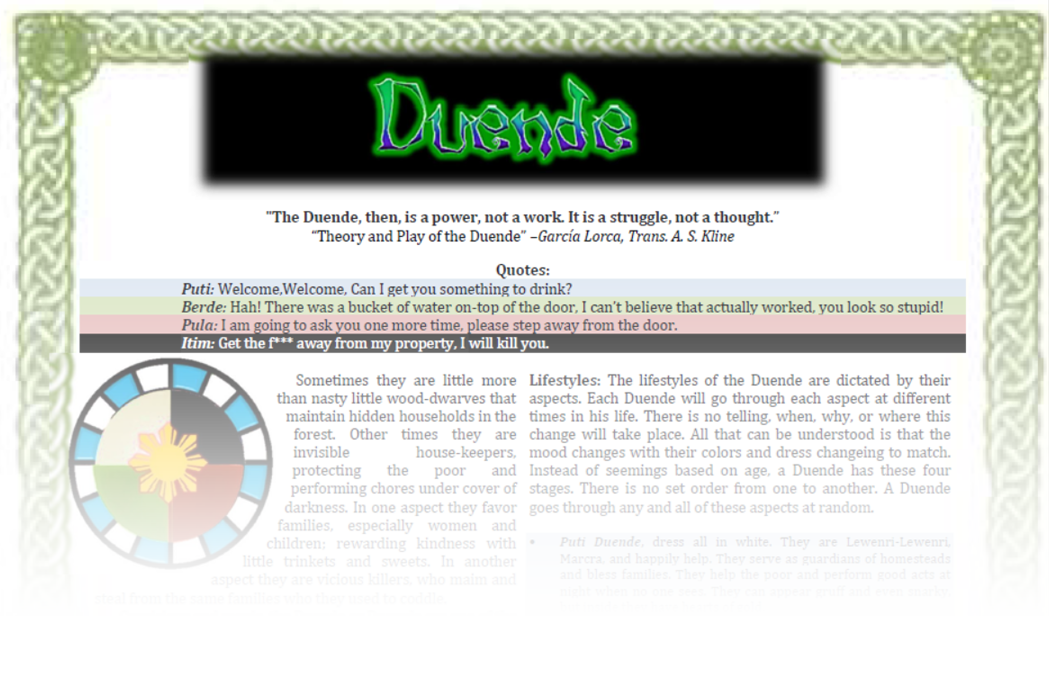A Year and A Day: Duende
Changeling: the Dreaming
Homebrew Rules
Character Creation Guide Download: Duende.pdf

Quoth the Duende –
As the Puti:
“Welcome, Welcome, Can I get you something to drink?”
As the Berde:
“Hah! There was a bucket of water on-top of the door, I can’t believe that actually worked, you look so stupid!”
As the Pula:
“I am going to ask you one more time, please step away from the door.”
As the Itim:
“Get the f*** away from my property, I will kill you.”
Kith Excerpt:
Sometimes they are little more than nasty little wood-dwarves that maintain hidden households in the forest. Other times they are invisible house-keepers, protecting the poor and performing chores under cover of darkness. In one aspect they favor families, especially women and children; rewarding kindness with little trinkets and sweets. In another aspect they are vicious killers, who maim and steal from the same families who they used to coddle.
Capricious and manic, the Duende or Dwende are one of the most misunderstood of the Aswang (Filipino Monsters). They are manifestations of both a home’s domesticity and the wildness of the forests. They are representations of both Lewenri (Seelie) and Aghoy (Unseelie), and the extremes of both courts. In this, the Duende family of Aswang serves the force of duality that the Filipino Dreaming is notorious for. While most are at a loss as to understand what aspect a Duende offers, those few wise in the ways of the Aswang offer an easy explanation. The Duende are.
A Duende doesn’t have seemings like the other Kapatiran (Kith). Instead it has phases that dictate their roles at certain points in life. In all effects, these four phases are akin to four different actual lives, not unlike the Seemings of other Fae. Each life can be guessed by which color he wears. White are the most benevolent, Green are kind but mischievous, red are nasty and mean, and black are the most malevolent. What may be a friend or ally in one life, will turn against fellows in another life with no rhyme of reason to offer solutions.
Flavor
“The Duende, then, is a power, not a work. It is a struggle, not a thought.”
– García Lorca, Trans. A. S. Kline, “Theory and Play Of The Duende”

